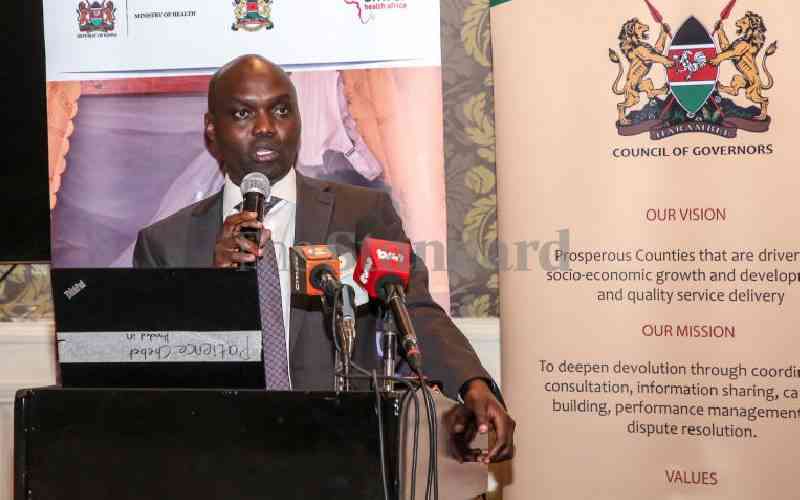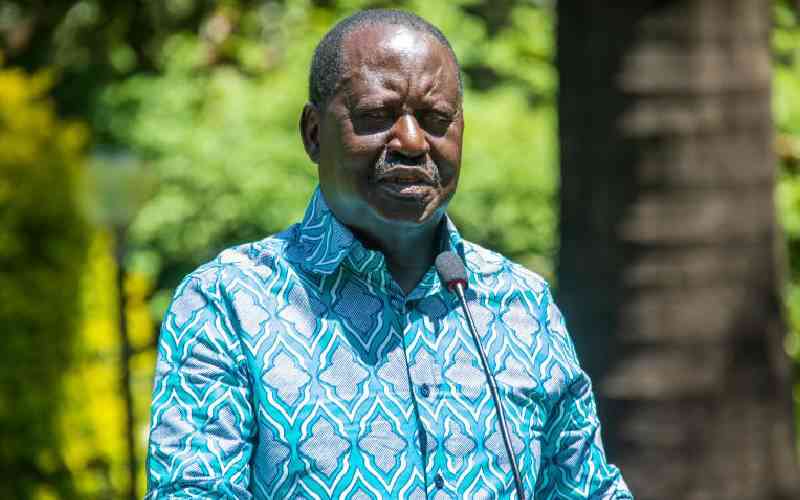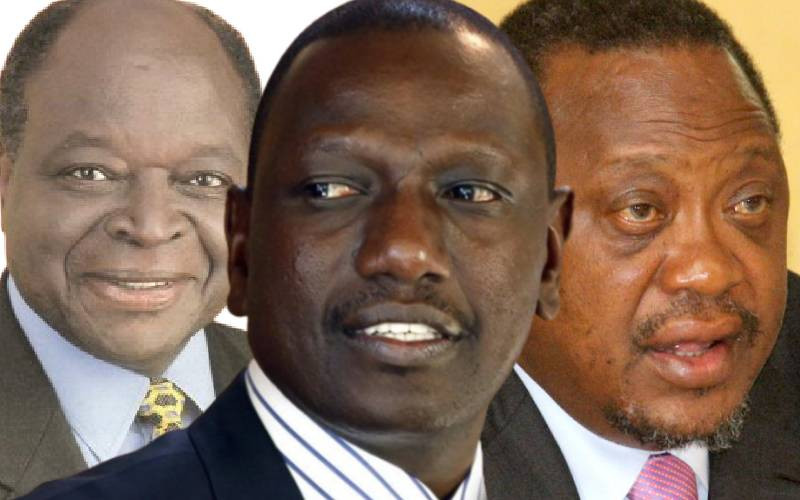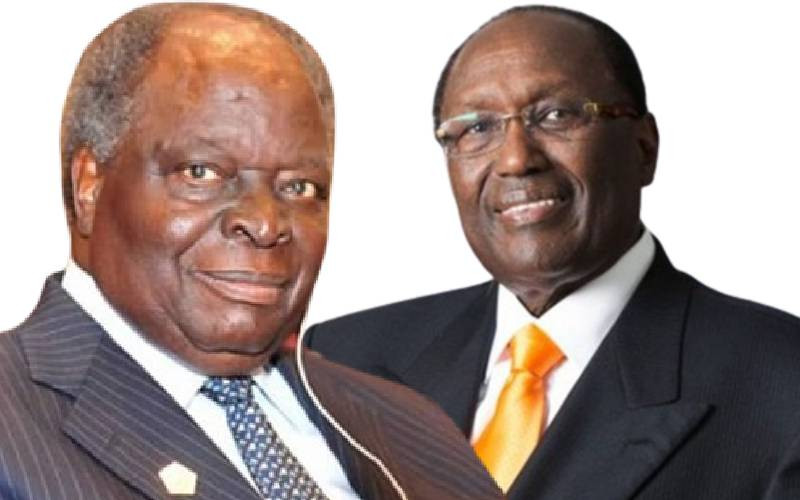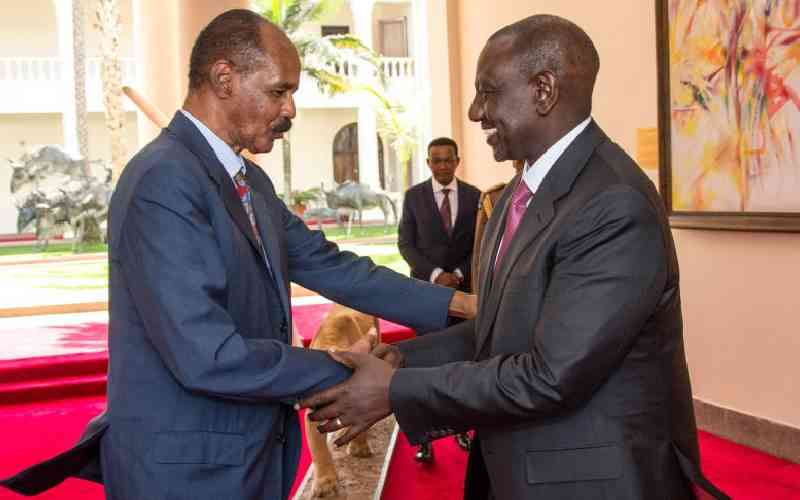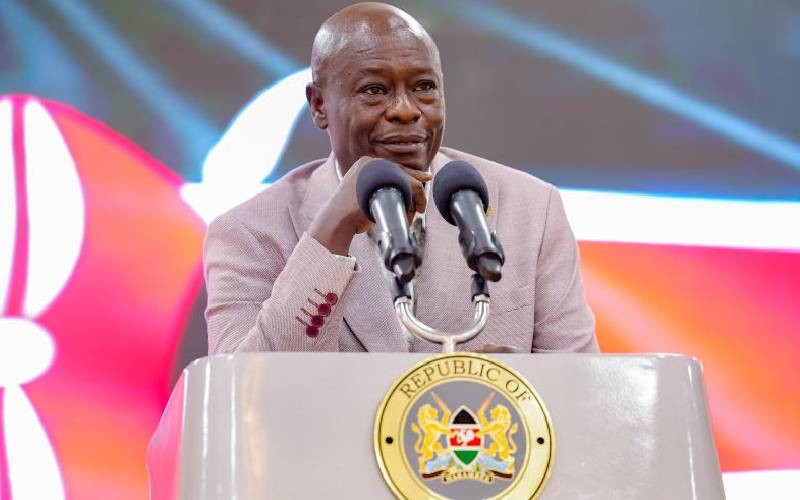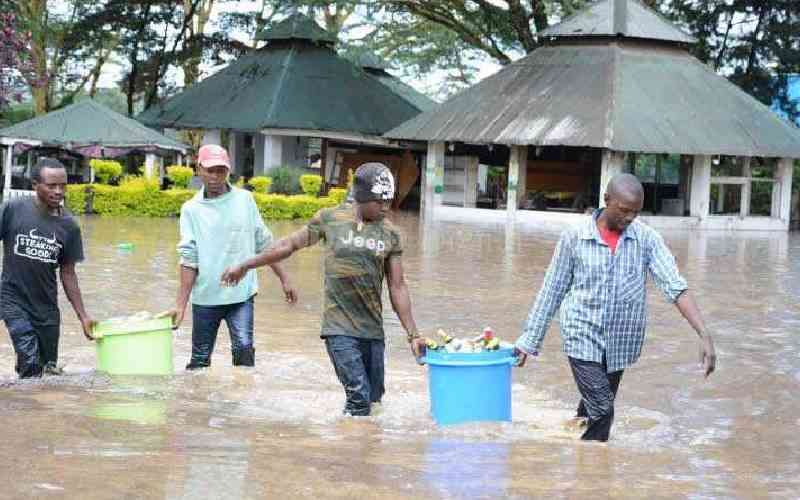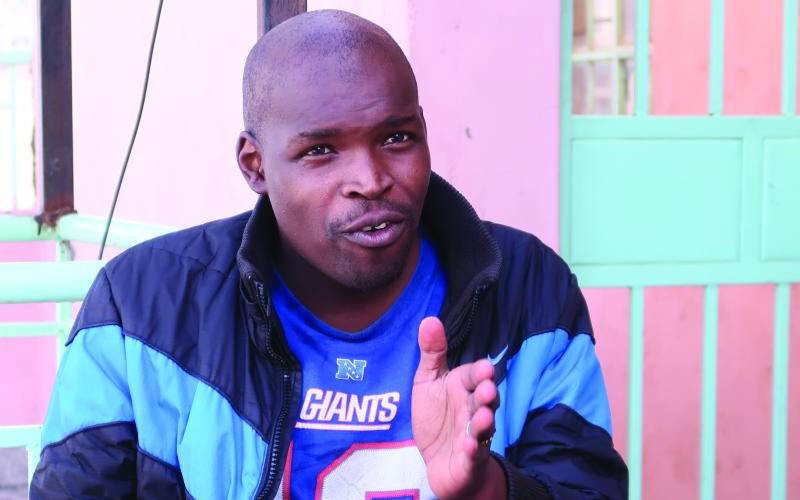By ATHMAN AMRAN
Political stability and national security were key themes in President Kibaki’s last Madaraka Day address as Head of State yesterday. Focusing on two causes of public fears, he promised protection from terrorists and a smooth hand-over of power when he leaves office.
Kibaki warned that the coming General Election will be more competitive than any previous one and Kenyans should choose their leaders wisely. The President said the Government was taking measures to ensure peaceful, free and fair elections as well as a smooth transition to a new Government.
“To this end, the Government has prepared the Assumption of Office of President Bill, which will be tabled in Parliament soon,” he told those gathered at the Nyayo National Stadium to mark the 49th Madaraka Day. The Bill details how a President-elect will take over office, with clear timelines for the handing over process. The draft law is meant to avoid the chaos that followed the opposition’s electoral removal of the Kanu regime in 2002. It also addresses criticisms raised about Kibaki’s hurried swearing-in at dusk for a controversial second term in December 2007.
Earlier, Deputy Prime Minister Musalia Mudavadi was called upon to invite the President to address the nation. Prime Minister Raila Odinga and Vice President Kalonzo Musyoka, who Government protocol would have required to do the honours, are both abroad. Deputy PM Uhuru Kenyatta, the other choice alongside Mudavadi, attended the event and sat next to National Assembly Speaker Kenneth Marende.
Hunt down terrorists
Speaking days after a terror attack in Nairobi that killed one person, Kibaki vowed the Government would hunt down all terrorists and criminals. He warned the Government would not relent in guaranteeing national security.
“As a nation, we will never be intimidated,” said the Head of State. Kenya has suffered several retaliatory attacks blamed on the Al Shabaab terror group, which the Kenya Defence Forces are fighting in Somalia. On Friday, Al Shabaab threatened an attack on Kenyan skyscrapers in the next two weeks,
Kibaki added: “Even as our security agencies deal firmly with these elements, I urge Kenyans to complement their efforts by volunteering information that would lead to their arrest and prosecution.”
He told Kenyans not to harbour a criminal or terrorist who is a danger to their brother and sister and fellow Kenyan.
On regional security, the President said he hoped the new Government that takes over from the current Transitional Federal Government in Somalia would set the country on a clear path to peace, stability and development.
“The success of the on-going efforts require the total commitment of the Somali leaders, as well as regional states and international partners. I call upon these leaders and partners to demonstrate full commitment and help Somalia move forward,” he said.
The President urged South Sudan and Sudan to stop acts of aggression and seek to resolve their disputes through established mechanisms of dialogue.
He said the tension between the two states threaten to reverse the gains made over many years.
On food security, the President said the Government has allocated Sh8.5 billion to rehabilitate and expand irrigation schemes in Arid and Semi Arid Land areas.
Stay informed. Subscribe to our newsletter
“This year, the Government will also spend close to Sh20 billion to expand various irrigation schemes in the country,” the President said.
He observed the budgetary allocation to the agriculture sector had steadily increased from Sh14 billion ten years ago to Sh104 billion currently.
The President said the additional budgetary allocation is being used to improve access to inputs of fertilisers and seeds, expansion of irrigation and post-harvest crop management.
He however said as the Government allocates more funds to various sectors, Kenyans want to see more results.
“We must guard against corruption which is a great enemy of our development efforts. I therefore expect institutions charged with the responsibility of fighting corruption to ensure more accountability in the use of funds,” the President said.
On infrastructure development, the President said the Government is currently undertaking major road construction and rehabilitation works valued at over Sh103 billion across the country.
And through the Roads Maintenance Levy Fund, the government has allocated Sh30 million per constituency for repair and maintenance of rural roads in the current financial year.
“These investments are not only expected to enhance higher productivity of road users but also facilitate the marketing of goods and services,” the President said.
He however urged Kenyans, especially owners and drivers of large vehicles to ensure that they do not overload their vehicles as this will damage newly built and rehabilitated roads.
Dangerous driving
He also urged drivers to obey the Highway Code at all times to avoid reckless and dangerous driving and avoid using mobile phones while driving or driving under the influence of alcohol.
President Kibaki also said the Government has now focused on strengthening small and medium size enterprises to complement the formal job sector, which, although it has been expanding over the years has not generated adequate opportunities to meet the demand for employment.
He said this has been done by improving the regulatory environment that has led to expansion of services to all parts of the country, which has ensured that majority of Kenyans have access to financial services.
The President said the Government has also strengthened the cooperative movement as a source of affordable credit for investment adding that over 7 million Kenyans are now part of the cooperative movement, which has mobilised over Sh200 billion in savings.
He commended young people who are setting up small and medium size businesses with little capital but with many innovative ideas especially in ICT and engineering.
To support the activities of the youth, the President directed all relevant government agencies develop strategies that will enable the small and medium businesses to grow financially and access larger markets.
He also appealed to financial institutions to develop products specifically targeting young people who may not raise significant collateral in order to secure credit facilities.
 The Standard Group Plc is a
multi-media organization with investments in media platforms spanning newspaper
print operations, television, radio broadcasting, digital and online services. The
Standard Group is recognized as a leading multi-media house in Kenya with a key
influence in matters of national and international interest.
The Standard Group Plc is a
multi-media organization with investments in media platforms spanning newspaper
print operations, television, radio broadcasting, digital and online services. The
Standard Group is recognized as a leading multi-media house in Kenya with a key
influence in matters of national and international interest.
 The Standard Group Plc is a
multi-media organization with investments in media platforms spanning newspaper
print operations, television, radio broadcasting, digital and online services. The
Standard Group is recognized as a leading multi-media house in Kenya with a key
influence in matters of national and international interest.
The Standard Group Plc is a
multi-media organization with investments in media platforms spanning newspaper
print operations, television, radio broadcasting, digital and online services. The
Standard Group is recognized as a leading multi-media house in Kenya with a key
influence in matters of national and international interest.

